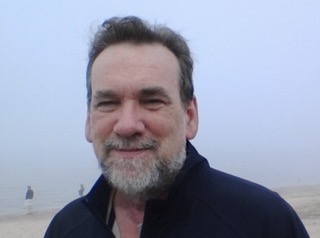Director Alex Stapleton Gets Personal in HBO’s “God Save Texas”
Throughout her career, Emmy-winning documentarian Alex Stapleton has spotlighted such colorful characters as baseball legend Reggie Jackson and movie maverick Roger Corman. She’s examined the role athletes play in the cultural and political conversation in Shut up and Dribble and investigated the struggle for LGBTQ rights in Pride. But the HBO series God Save Texas presented Stapleton an opportunity to document a subject unlike any she had captured before — herself.
Inspired by Pulitzer Prize-winning author Lawrence Wright’s 2019 book of the same name, God Save Texas explores three timely subjects through the eyes of Texas-based filmmakers. Richard Linklater kicks it off with Hometown Prison, an insightful look at the prison industry in Huntsville. In La Frontera, Iliana Sosa offers an emotional exploration of the country’s border policies framed around the 2019 mass shooting in El Paso.
Stapleton’s segment, The Price of Oil, sees her returning to her hometown of Houston to explore how its dominant industry has impacted the Black community. Through interviews with aunts, uncles, and cousins, she details how not only have they failed to reap any economic benefits from oil but also that they are suffering from the environmental impact of unregulated refinery expansion that has put both their health and Pleasantville, their Houston community, at risk.
In a candid conversation, the producer/director discusses taking on big oil, delving into family history, and defining her role as a Black female documentarian.
How did you get involved with God Save Texas?
Larry Wright and (filmmaker) Alex Gibney had partnered on many iconic docs, so they got together with Texas filmmakers to bring the book to life. HBO came in, and the search began. Richard Linklater is an old friend of Larry’s, so it made sense to call him first. I came on second, and Iliana Sosa became the third director.
What led to your theme of choosing the oil industry in Houston?
There wasn’t a premeditated plan. They wanted these stories to feel authentic and personal. It so happened that I was from Houston, and Larry wanted an oil story. What’s interesting is how my family was left out of the wealth created. So we went with that and started filming.
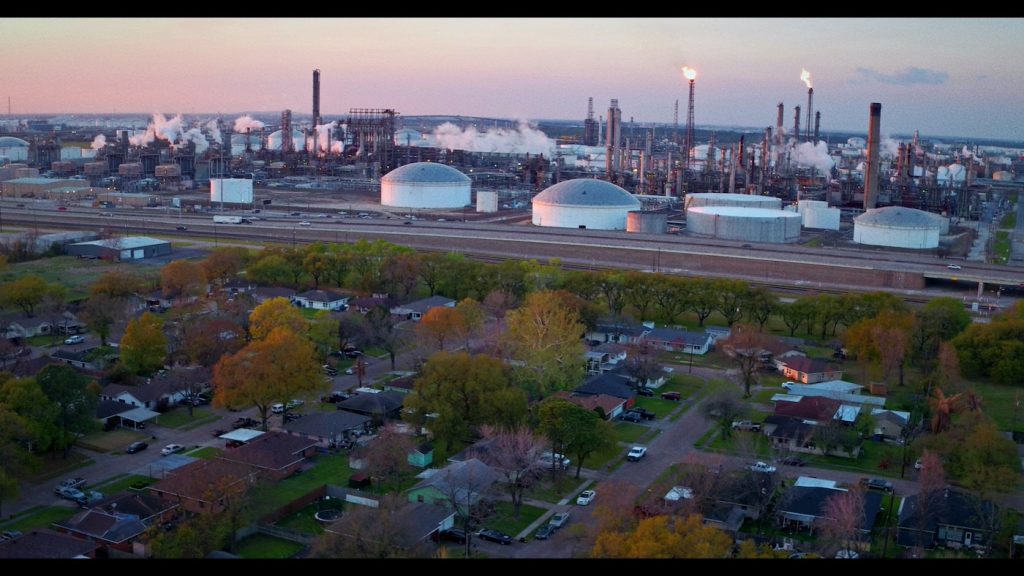
What surprised you as the story came together?
I’ve been making docs for twenty years. Most of the time, you never know where you’re going to end up because you’re following real life. I had an idea, but this was unchartered territory for me.
In what way?
I have never turned the camera on myself and my family. Larry calls me a Texan in exile for over 20 years. I was coming home and learning about my own history. My mother had told me our family had been in Texas for a really long time. But then you see, “Oh my God, seven generations!” My enslaved ancestors, my family’s contributions to the state — I hadn’t put the pieces together.
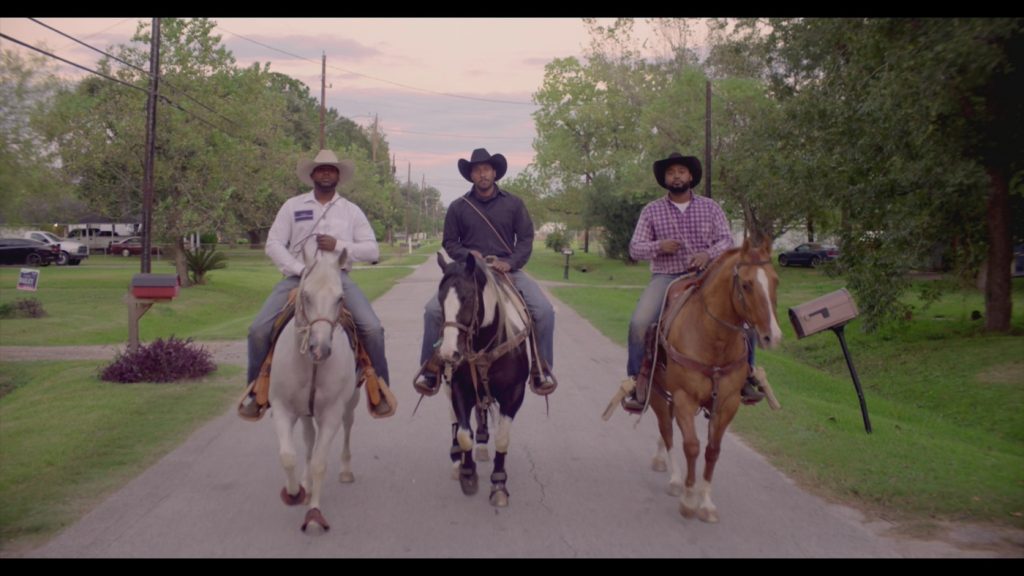
What was the filmmaking process like?
We shot during COVID. I had to figure out how to tell a story as the world was shutting down. Texas is a state that’s in denial about a lot of things. The rodeo was starting, and the city shut it down. It’s a big deal when Houston shuts down the rodeo.
How did you adjust?
I was in lockdown with my mom for about six weeks and just kept prepping. I was able to go through the material because we had a lot of time to kill. In a weird way, it became a deeper story because of the pandemic.
Did that impact filming?
There were things I wanted to shoot that I couldn’t. The biggest thing was going back to the plantations. People tour these places and think they’re these great landmarks. How can you show this history and totally ignore what my family was doing there? I wanted to show the flip side but couldn’t during COVID. It made the filmmaker in me sad.
How did your family react when they learned you wanted to film them?
For the first time, they understand what I do. When I came home, I had to get their permission. They said yes and thought I was going to show up with my cell phone and ask questions. Then I got there with my wonderful DP, Arlene Nelson, and my producer, Meghan O’Hara. We weren’t a giant crew, but my family thought our equipment was really cool. They were like, ‘Oh, wow! This is how docs are made!” I think they were proud of me. It was a special moment. I’ve never mixed the two worlds before. I could show them it’s because of my family that I’ve been allowed to have this career.
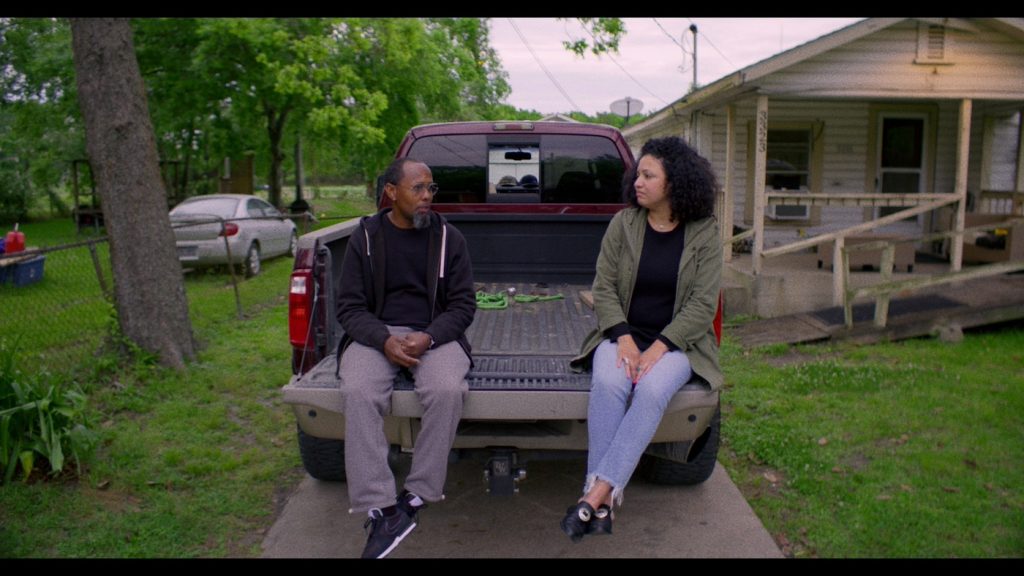
A particularly emotional moment was watching your great aunt’s house torn down because of the damage from Hurricane Harvey.
When I started, I had no idea that was going to happen. I knew my aunt and her daughters were working to get the funds to make fixes. But I didn’t know that tearing it down and building a new one was an option. None of us thought that would happen because this home is like a monument to us. My family called me and I ran there and shot it on my cell phone. I get emotional thinking about it. She passed away not too long after and didn’t see the new house. I lost two family members to COVID. That was the biggest impact the pandemic had on me.
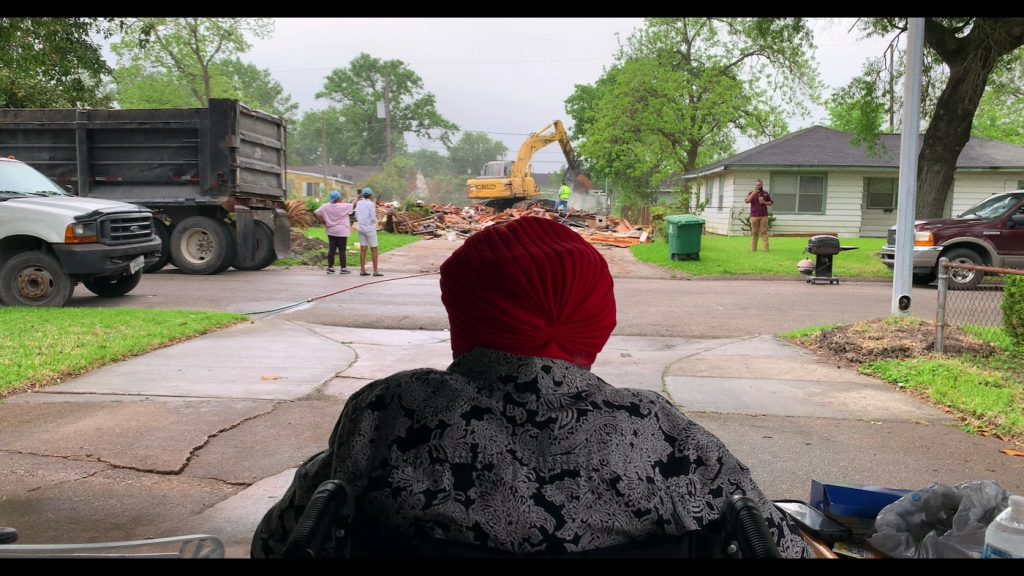
What else does this project mean to you?
I feel lucky to be able to tell a story that’s been overlooked for so long. I love Texas for that village that raised me and the people I know. But I do see the problems. I don’t agree with our politicians’ mission to ban books, erase whole groups of people, and reimagine history. I’m so grateful to Larry for writing this book and Alex Gibney and HBO for bringing me on board. No matter what, this film exists. The history of enslaved people in Texas was not taught in school. I hope that Texans watch this series and understand that it’s up to us to preserve our stories and fight to get them out there.
God Save Texas premiering during Black History Month is especially poignant.
I feel so immensely proud to be from a lineage that endured and survived. I’m part of a rich and vibrant culture. My grandfather was a real cowboy! We grew up celebrating Juneteenth. It’s always been a big holiday in Texas. So it was cool when it went national. I can’t believe that John Thomas, enslaved by Michel Menard, founder of Galveston, is my great-great-uncle and part of turning Juneteenth into a holiday.
Why did you choose to make documentaries?
I kind of fell into it. I knew I wanted to work in film and went to New York right out of high school. I wanted to direct scripted projects. I didn’t go to film school. I worked my way up from the bottom, from intern to assistant. It was hard to be a woman, especially a Black woman, and say, “I want to be a director” — and have people take you seriously. The doc community was different. I produced my first documentary when I was 24. It premiered at the first Tribeca Film Festival. I enjoyed the fact that I could produce something, take the reins, and be a part of crafting the story. I guess I got bit by the bug on that film. Then, I directed my first film a few years later, and it never left.
God Saves Texas airs on February 27 & 28 at 9 p.m. ET on HBO.
Featured image: Houston, Texas. “God Save Texas.” Courtesy HBO.


